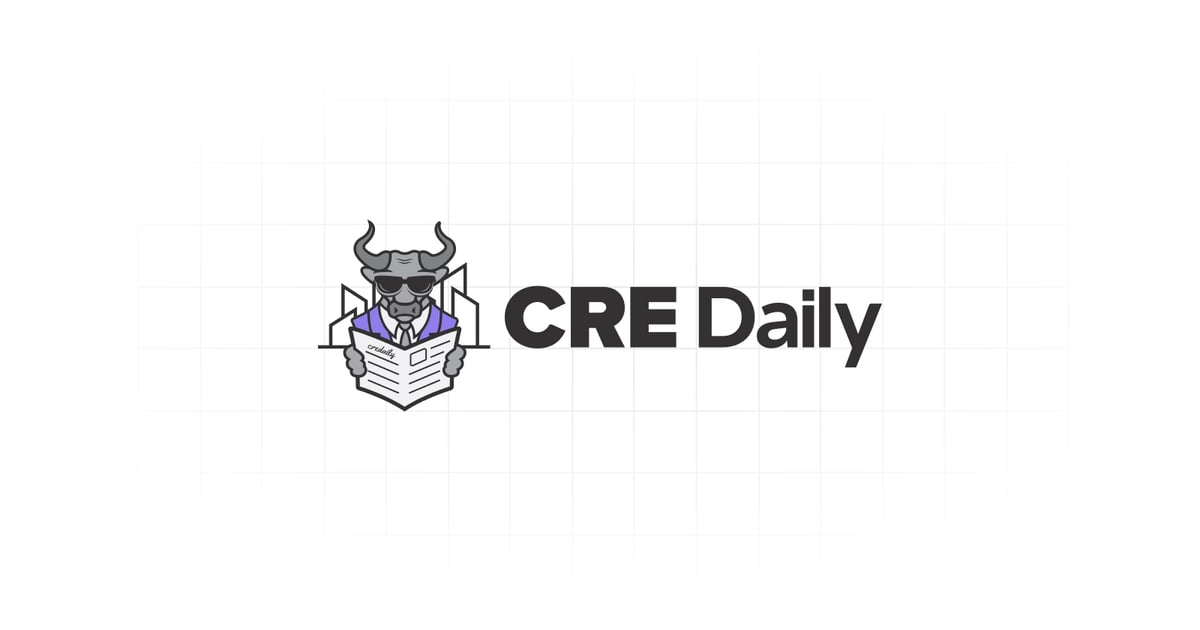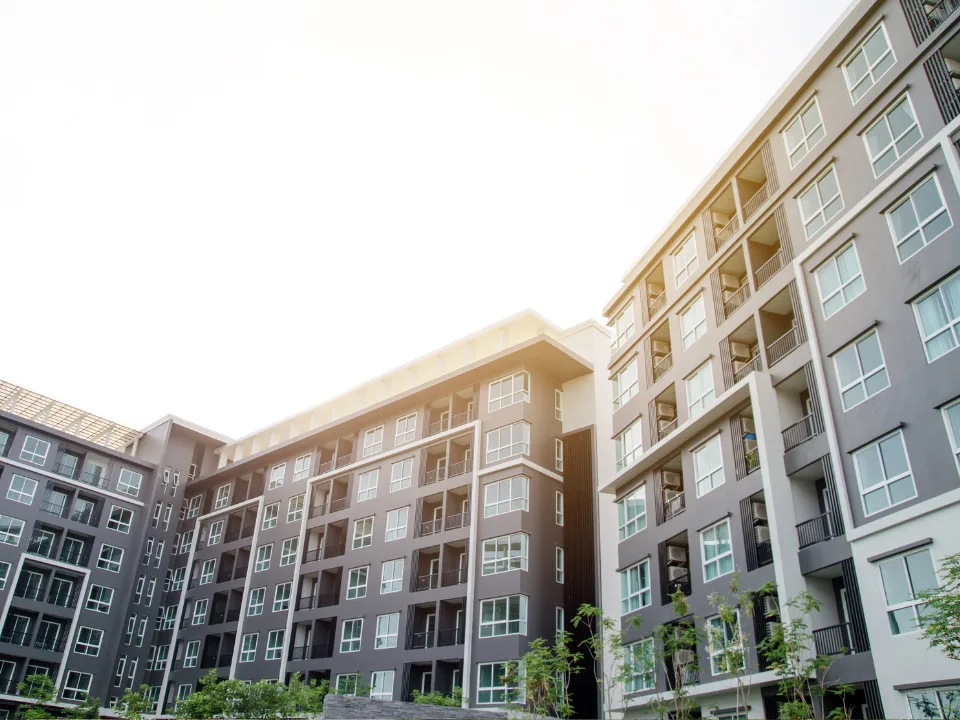Wall Street Flocks to Distressed Real Estate Amid Plummeting Values
To capitalize on plummeting property values and the challenged CRE market, Wall Street heavyweights such as Cohen & Steers, Goldman Sachs, EQT Exeter, and BGO are raising billions for funds targeting distressed assets and slumping property values.
Together with
Good morning. Wall Street heavyweights are raising billions for funds targeting distressed assets and declining property values. Real estate investing platform, Yieldstreet, is in talks to acquire Cadre. Meanwhile, the CBRE Lending Momentum Index reported a steep 52.2% YoY decline.
Today’s edition is brought to you by Buildout—the easiest and most affordable way to get high-quality visuals for your listing.
👋 First time reading? Sign up here
Market Snapshot
|
|
||||
|
|
*Data as of 8/15/2023 market close.
CAPITALIZING ON CRISIS
Wall Street Flocks to Distressed Real Estate Amid Plummeting Property Values

To capitalize on plummeting property values and the challenged CRE market, Wall Street heavyweights such as Cohen & Steers, Goldman Sachs, EQT Exeter, and BGO are raising billions for funds targeting distressed assets and slumping property values.
Troubling times: The commercial property market is facing its most challenging period in decades. Values have nosedived due to a spike in interest rates, which have increased borrowing costs in the highly leveraged business. The sluggish return-to-office rate has hit the office market hard, resulting in soaring vacancy rates. Simultaneously, apartment buildings are becoming increasingly vulnerable as owners struggle to refinance at higher rates, and mall owners are grappling with steep declines in property values, in some cases more than 70%.
A Shifting Landscape: The turning point seems near. Previously stagnant due to sellers’ reluctance to lower prices, commercial-property sales have begun to see some movement. A growing number of property owners are starting to capitulate and unload distressed properties at current market rates, indicating a new phase in the commercial real estate upheaval. This shift is expected to lead to increased sales activity as more sellers yield on price rather than holding out hope for an eventual recovery.
Bargain hunting: As property values have fallen significantly, major investors are spotting opportunities. Investment firms are raising new funds to not only buy property at discounted prices but also to lend to property owners, filling the void left by the decreased activity of regional banks and mortgage REITs. This new wave of fundraising, targeted increasingly at individual investors, signals a robust appetite for property investments despite recent volatility.
Reaching the everyday investor: Tapping into retail investors has become a new trend. New funds, including those by Invesco and Cohen & Steers (CNS), are targeting retail investors, aligning with the surge in demand for property REITs, which have raised $100B in the past seven years. Meanwhile, nontraded REITs established before the recent rise in rates have faced pressure to reimburse investors seeking cash-outs.
Fire sale: Amid the market turmoil, deeply discounted sales are becoming the new norm. For example, a San Francisco office tower sold for $41M, dramatically below its 2014 price of $107M. Property owners with floating rate debt and stressed regional banks are also increasingly selling at a discount, fueling the rise of distressed CRE transactions. Property values, already down 10–15%, are projected to fall further, potentially by 20–25%.
➥ THE TAKEAWAY
The waiting game: Despite the substantial ‘dry powder’ available for private-equity firms and the surge of interest from Wall Street, the future of distressed real estate opportunities remains uncertain. Much depends on the broader U.S. economic landscape, which could see a soft landing that tames inflation without triggering a recession, as orchestrated by the Federal Reserve. With the potential for the stabilization of debt markets and clearer property values on the horizon, many investors are adopting a “wait-and-see” approach, looking for motivated sellers as they navigate this turbulent market.
TOGETHER WITH BUILDOUT
How to Leverage Visual Media in Your Commercial Developments
In today’s tough market, you’re up against high interest rates, soaring construction costs, and tedious zoning meetings. So, when choosing vendors to help you navigate the market, it’s important to look for a collaborative partner who will help you overcome these challenges every step of the way.
At Oval Room by Buildout, they understand that conveying your development’s potential is paramount. Their powerful visual media tools, including hyper-realistic aerial renderings and captivating property marketing videos, unlock a whole new dimension to your development.
Their team fine tunes services to meet your unique needs ensuring quicker progression through the crucial early phases of your project. Watch this brief video of case studies showing how other developers are utilizing visual media to expedite equity raise, zoning/planning, and ultimately pre-leasing.
PROPTECH SQUEEZE
From $800M to $100M: Cadre in Negotiations with Yieldstreet for Potential Acquisition

Yieldstreet CEO Michael Weisz and Cadre CEO Ryan Williams (Getty, Salt Conference)
Yieldstreet, a platform specializing in private market investing, is reportedly in talks to acquire the real estate investment platform Cadre. The speculated deal could value Cadre at an estimated $100M—a stark contrast to its peak valuation of $800M in 2017.
Cadre’s promising start: Founded in 2014 by Ryan Williams alongside the Kushner brothers, Cadre emerged with the vision of using technology to revolutionize real estate investments. Boasting financial backing from industry titans like Andreessen Horowitz, George Soros, and Jack Ma, the company’s early trajectory hinted at limitless potential.
Unmet expectations: However, as larger private equity funds have asserted their dominance, Cadre found itself struggling to keep pace. This struggle crystallized recently, when investors learned the company’s revenue was far below expectations—less than $30 million annually—and that profitability remained elusive.
Proptech pinch: In an environment of climbing interest rates, Cadre isn’t alone in its troubles. Investors are pivoting from valuing growth to insisting on profitability, placing many proptech firms under strain. Evidence of this shift is stark, with companies like Matterport and Latch downsizing significantly. Sector-wide, funding has plunged, from a weekly average of $545M in 2022 to a current $198M, according to the Center for Real Estate Technology and Innovation.
A possible future with Yieldstreet: If the acquisition materializes, Cadre’s shareholders may soon hold stock in Yieldstreet, a company led by Michael Weisz. With a valuation of $850 million as of 2021, Yieldstreet offers investments in real estate and alternative assets, potentially offering Cadre a lifeline and a new trajectory amidst these challenging times.
➥ THE TAKEAWAY
Zoom out: As Cadre weighs a potential acquisition amid its challenges, it finds itself in a turbulent proptech landscape where even its competitors are not immune to strife. Notably, CrowdStreet, a primary competitor of Cadre, is currently grappling with a significant embezzlement scandal in which Nightingale Properties allegedly diverted over $40M into accounts controlled by its CEO, Elie Schwartz. This scenario underscores the varied and significant risks inherent in the rapidly evolving proptech sector.
🌐 AROUND THE WEB
📖 Read: Despite challenges in San Francisco’s office market, some businesses and individuals are not shunning the city and still see the potential for recovery and growth.
🎧 Listen: In this episode of Building Controversy, explore the troubling rise of child labor in the construction industry and the causes behind this concerning phenomenon.
LENDING SLOWDOWN
CRE Lending Faces Persistent Sluggishness

TRD: A photo illustration of Blackstone CEO Stephen Schwarzman (Getty)
CRE lending has seen a significant decline in 2023, with the CBRE Lending Momentum Index reporting a 5.4% drop in 2Q compared to Q1 and a steep 52.2% YoY decline.
Banking holds the reins: Despite the bleak landscape, banks have solidified their dominance in non-agency loan closings for a fifth consecutive quarter. They accounted for 43.4% of total Q2 closings, a slight increase from 41% in Q1. Life insurance companies made a significant 26.8% of originations, largely leaning towards safer assets such as multifamily and industrial properties, with smaller regional and local banks actively funding industrial construction. Remarkably, 43% of these loans were refinancings.
A sea change in the lending landscape: As we navigate through 2023, alternative lending, including debt funds and mortgage REITs, has risen to make up 26% of the landscape. Contrastingly, CLOs saw a staggering 91.3% plunge. CMBS lending also plummeted, with conduit loans dropping from 15.7% in Q1 to a mere 3.8% in Q2. To illustrate this stark shift, CMBS represented $16.5B in the first half of the year, a stark contrast to $49.9B during the same period in 2022.
Widening spreads: Amidst this turbulent lending environment, spreads have been widening. The spread between closed commercial mortgages and 10-year US Treasuries widened from 206 bps in Q1 to 227 bps in Q2. As data from July suggests, commercial and multifamily spreads are poised to widen by an additional 5–10 bps relative to Q2 closed loan averages. Notably, Q2 observed a surge in sub-$10M loans with mortgage coupon rates landing between 5.5–6.5%.
Tight underwriting persists: In the midst of these sweeping changes, underwriting standards remain stringent. Cap rates and interest rates saw minimal change compared to Q1, while average underwritten cap rates increased by 43 bps to 5.52%. Meanwhile, average loan constants edged up to 6.61%, with a notable 82.1% of loans featuring partial or full-term interest-only terms.
➥ THE TAKEAWAY
Shifting preferences: Amid a challenging market, borrowers are pivoting towards fixed-rate, short-term loans to buffer against soaring borrowing costs and intense market volatility. The CRE lending landscape, reflecting cautious market sentiment, remains notably constrained. This pervasive caution has directly impacted lending volume, forcing a noticeable shift in borrowers’ preferences as they chart their course through these uncertain waters.
✍️ DAILY PICKS
-
Deal drought: Chicago’s downtown office market is experiencing a more than year-long sales drought, reflecting a national slowdown in office sales.
-
Leadership change: Blackstone’s BREIT named Rob Harper as replacement president as A.J. Agarwal will be on a nine-month continuing education sabbatical.
-
Cold storage surge: Atlanta-based Envision Cold secured a $500M investment to rapidly expand its cold-storage warehouse presence, allowing the company to acquire and develop more than $1.5B in cold-storage facilities across the country.
-
Multifamily rebound: Institutional Property Advisors foresee institutional investors reentering the multifamily market in 2H23, with the end of rate hikes and accumulated “dry powder” expected to drive increased activity in the sector.
-
Retail rebirth: Retail openings surpass closures, reflecting a more optimistic outlook for shopkeepers. But malls face a different battle as demand for mall spaces keeps dropping, particularly for Class B and C properties.
-
Mall revival: As e-commerce affects London’s three biggest malls, adding residential units including apartments and condos may be the transformation needed to keep properties alive.
-
Debt struggles: Icon Realty faces financial strain as $28M in debt backed by five properties are watchlisted due to low DSCRs due to revenue shortfalls caused by NYC’s rent stabilization laws.
-
Smoke shop crackdown: A new city law mandates fines of up to $10,000 for landlords leasing commercial space to unlicensed marijuana sellers, aiming to curb the proliferation of illegal weed shops in NYC and divert tax revenue from unregulated products.
-
Fitness acquisition: A publicly traded REIT has acquired a portfolio of seven EoS fitness centers in Florida and Arizona for around $94M.
📈 CHART OF THE DAY
In 2022, 10-year government bonds recorded their worst year since 1788, as reported by Bank of America. Additionally, the yield on the 10-year note is nearing its 2007 highs, currently surpassing 4.20%. These developments suggest that the bond market may be signaling significant changes or concerns ahead.
What did you think of today’s newsletter? |
📣 HIT THE INBOX OF 65K+ CRE PROFESSIONALS
Advertise with CRE Daily to get your brand in front of the Who’s Who of commercial real estate. Subscribers are high-income decision makers, investors, and C-suite executives always looking for their next investment, product, or tool. For more information, please email [email protected].





















